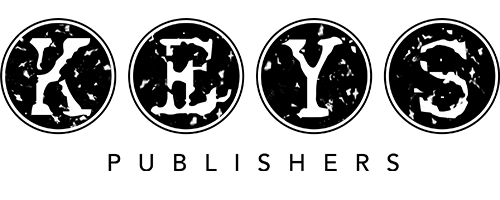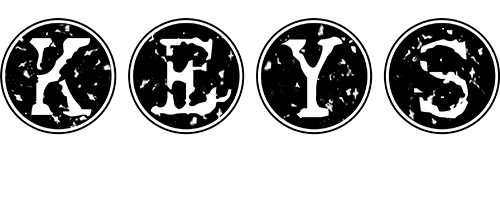05 Jun Medication-Free Methods For Managing Hypertension
Hypertension, or “high blood pressure” affects roughly a third of all adult Americans. It is dubbed “the silent killer” because it can lead to various deadly medical problems. The insidious nature of hypertension is likely why it has claimed thousands of lives annually while its victims show subtle symptoms or no symptoms at all. Hypertension and its related diseases such as heart disease, stroke, kidney disease, and dementia make up more than a third of all African American deaths annually. Thats right – for “us,” they exceed cancer, car accidents, and homicide related deaths! Despite advances in healthcare, people and professionals alike are still searching for ways to safely manage hypertension.
hypertension in african americans
African Americans tend to suffer from hypertension earlier in life than our counterparts of other ethnicities. We also tend to have more severe cases of hypertension. About half of African Americans diagnosed with high blood pressure are “stage 2 hypertensives.” This is due to several reasons, such as:
- Lack of access to adequate healthcare and wellness advice
- Decreased health and wellness interactions due to medical mistrust
- Poor diet habits
- Higher rates of obesity, diabetes, and high cholesterol, which are all related to hypertension
- Increased salt sensitivity, due to our unique genetic attributes
Diagnosis of hypertension can come from several readings on several occasions above the normal range of 120/80, or a single crisis reading of 160/90 or above. Upon diagnosis, many providers will suggest vague lifestyle changes while almost concurrently writing a prescription for antihypertensive medication. Several standard antihypertensive medication may come with annoying side effects, a false sense of security, and a downward trajectory of dependence that could last for the rest of the user’s life.
In order to increase collective life expectancy and quality of life, African Americans have to change the way we view hypertension. We, more than any other group in the world, need to familiarize ourselves with the causes and effects of hypertension. We also need to learn how to manage it in a way that makes sense for us. Below you will find a few ways that the average person can manage hypertension without the use of prescription medication.
weight management
FACT: For every 10 pounds you lose, you decrease your systolic (top number/numerator) blood pressure by roughly 10 points. Finding your ideal body weight and maintaining it is key to preventing, managing, or “reversing” hypertension. Using body mass index (BMI) calculators to find your ideal body weight is a great way to start. BMI has its detractors, but the numbers of chronically ill people outside of normal BMI are staggering. Body image perception is a common hindrance to ideal body weight- this is why having a numerical (weight in pounds or kilos) target is so important. Regulating your weight will lower your blood pressure – it’s just that simple.
blood viscosity
Blood viscosity refers to the consistency of someone’s blood. The higher the viscosity, the thicker the blood (think honey or crude oil). The lower the viscosity, the thinner and more fluid (think water). Human blood should be relatively low in viscosity. Viscous blood will certainly increase its host’s blood pressure and put unnecessary strain on the heart, causing even worsening blood pressure and heart failure. Causes of viscous blood include high cholesterol, daily intake of fried or processed foods, diabetes/ blood with high sugar content, high sodium diet, and poor hydration. There are other pathological causes as well. To avoid high viscosity blood, drink lots of water (I recommend at least 2L per day), avoid fried and processed foods, and stick to equal or less than the daily recommended amounts of sodium and sugar.
routine exercise
Regular exercise can aid with lowering stress levels, losing or maintaining a healthy body weight, and strengthening the heart. Just 30 minutes of some form of exercise per day is adequate to help to manage blood pressure. We are active beings by nature; it’s the nature of those activities that should be diverse. In other words, walk, run, swim, play sports- you can even do them all if you have the time. Consistency is the key to making sure your exercise efforts yield healthy results. Remember, just the resulting weight loss a lone is a critical element in managing blood pressure.
mindfulness
Stress is a major causative factor in hypertension. I often joke that the average American is leads such a stressful life that most of us don’t even know how to truly relax our minds and bodies. Mindfulness or meditation teaches us how to separate the worries of the mind from our weary bodies. High stress levels and poor mental health affect the body because the body and the mind are obviously connected. When we use mindfulness techniques to separate the two, even temporarily, we truly give the body a chance to rest and recover. I recommend mobile apps like Headspace, Calm, or simple habit for those unfamiliar with mindfulness or meditation. A little calm can go a long way when it comes to relieving stress and managing hypertension.
A multifaceted approach combining several or all of the above can normalize a person’s blood pressure. Medication should be a last resort for those of us who do not show signs of target organ damage or have other genetic or extrinsic causes of hypertension. For some groups this information could be life saving or changing. Don’t be stingy – please share the wisdom.
Kayode Smith is a Family Nurse Practitioner and Wellness Coach. His brand and specialty is culturally appropriate Urgent Care and Family Medicine (including family/parent counseling). He has more than a decade of Emergency Medicine and Urgent Care experience. He is affiliated with Parcare Community Health Network. You can schedule a wellness consultation here, or an initial telemedicine (urgent walk-ins also accepted) appointment with him by dialing 718-475-1700.


No Comments